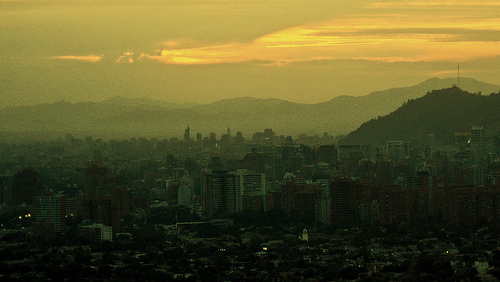The Republic of Chile is situated between the Andes Mountains and the Pacific Ocean. It has become a popular choice for expats because of its rich culture and high quality of life. Santiago, the political and financial capital of the country, is home to the majority of the foreigners living in Chile.
Staying connected with family, friends and colleagues back home is usually a priority for most expats. The internet provides several cost-effective ways to stay in touch with people around the world.Fortunately, the residents of Chile are quite satisfied with the country’s Internet services in spite of the fact that they pay high prices. Even those living in rural areas have access to internet connection through USB or Ethernet modems/ routers. Data shows that Chile has the highest computer and internet penetration across Latin America.
The internet industry throughout the country is managed by private organizations that offer various services and packages. The use of broadband is widespread, though the speed and cost may vary from one place to another. Depending upon the packages you opt for, you could pay anywhere between US$ 21.00 per month and US$ 100 per month for internet, television and telephone service combinations.
The major Internet Service Providers of the country include –
– VTR (Fixed and Mobile Internet) – www.vtr.com
– Movistar, formerly known as Telefonica (Fixed and Mobile Internet) – www.movistar.cl
– Entel (Mobile Internet) – www.entel.cl
– GTD Manquehue (Fixed Internet) – www.gtdmanquehue.com
Around 80% of the internet user market share is divided between VTR and Movistar. In addition to those mentioned above, there are at least 25 other service providers across the country that offer mobile or fixed internet packages. Even though mobile broadband has been advertised and marketed increasingly in the last 4 years, many users still show a preference for fixed internet lines.
When it comes to getting an internet connection, you have two options: contractual and prepaid. Only people with residency status can apply for contractual internet. Others have to opt for prepaid plans.
Contractual Internet
In order to apply for contractual internet, all foreigners must have their residency card along with other pieces of identification.
ISPs give you a choice of purchasing their router or using your own. All you need to do is fill in a form specifying which package you want to sign up for and the type of connection you want. Getting your paperwork verified and setting up the connection could take up to 15 days.
Many expats who don’t yet have their residency paperwork in place get their landlords to contract the internet and then pay for the services along with the rent on a monthly basis.
Some customer service representatives may tell you that you can apply for contractual internet without a residency card. However, after a few weeks, they are likely to come back to you saying that this isn’t possible.
Prepaid Internet
Anyone in Chile can apply for prepaid internet as long as they have the required identification. Most of the prepaid internet service providers have set up kiosks or helpdesks across the country to assist people with the paperwork. This is actually a good alternative for connectivity, which is used by many of the locals.
Customers applying for prepaid internet receive a dongle, which can be connected to various devices to provide internet on the go. Before being used, the dongle needs to be loaded with credit, just like a prepaid phone.
Getting a prepaid internet connection is also a lot easier. Dongles can be purchased from any ISP counter or store, where they are loaded and recharged.
Wifi
Free wifi zones are available at several areas in the major cities. However, finding these spots in the rural areas can be a bit of a challenge.
In Santiago, the airport has an open wifi signal, for which no password is required. Anyone at the airport can connect to the internet. Most of the city’s cafes, bars, restaurants and gas stations offer their customers free wifi. Patrons are usually expected to purchase something before connecting. You’ll need to ask a representative to give you the password. For a detailed list of restaurants and cafés offering free wifi across the country, go to www.wificafespots.com/wifi/country/Chile
While many libraries offer free wifi, their facilities may be quite limited.
Can we improve this article? Something wrong? Let us know in the comments.

